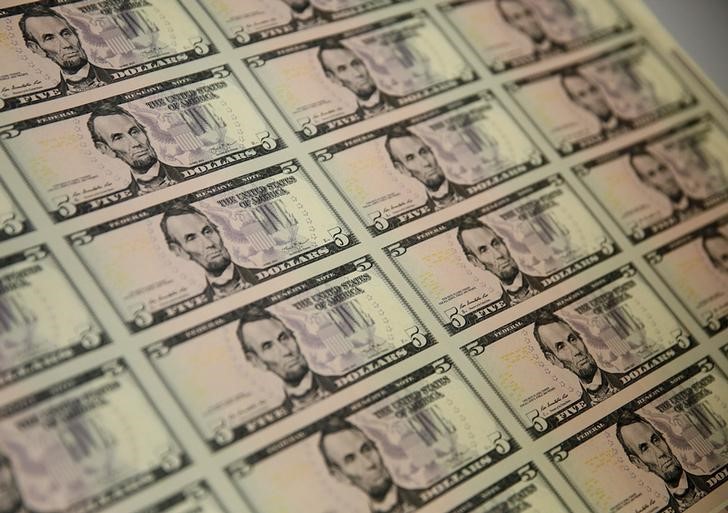By Peter Nurse
Investing.com - The U.S. dollar edged higher in early European trade Friday, boosted by rising U.S. bond yields as Fed chief Jerome Powell added to expectations for aggressive Federal Reserve monetary tightening.
At 3:05 AM ET (0705 GMT), the Dollar Index, which tracks the greenback against a basket of six other currencies, traded 0.1% higher at 100.760, not far removed from the two-year high of 101.03 seen earlier in the week.
U.S. Federal Reserve Chairman Jerome Powell virtually cemented market expectations of a 50-basis-point rate hike at the central bank’s next meeting in May, when he stated late Thursday that such a move was on the table while describing the labor market as overheated.
His remarks, although largely consistent with market expectations, saw the benchmark 10-year U.S. Treasury yield climb as high as 2.974%, around its highest level since December 2018.
“Driving this month's sell-off in Treasuries has very much been the story of the early and more aggressive Fed balance sheet wind-down - a story that will unfold over the coming months,” said analysts at ING, in a note.
This dollar strength is being played out, in particular, against the Japanese yen and the Chinese yuan, with Japan’s central bank sticking to its very accommodative stance and China’s economy hit by softening demand abroad and strict lockdowns at home.
USD/JPY traded 0.4% lower to 127.92, with the yen supported Friday by reports that Finance Minister Shunichi Suzuki discussed the idea of coordinated currency intervention with his U.S. Treasury Secretary Janet Yellen earlier in the week.
However, the pair is still up well over 1% this month, having climbed to a two-decade high of 129.43 earlier this week.
USD/CNY rose 0.3% to 6.4687, rising to a seven-month high amid worries extended COVID-19 lockdowns will sharply curb economic activity at the world’s second largest economy.
Nomura downgraded Friday its full-year GDP growth forecast for China to 3.9% from 4.3%, citing a worsening economic outlook and disruptions due to the country’s COVID Zero strategy.
Elsewhere, EUR/USD fell 0.1% to 1.0829, trading not far above a two-year low amid nervousness ahead of Sunday's presidential run-off vote in France, while AUD/USD fell 0.8% to 0.7313, dropping to a five-week low.
GBP/USD fell 0.5% to 1.2967, weighed by U.K. retail sales falling 1.4% on the month in March, dropping for the third time in the last four months in March as the cost-of-living crisis weighed ever more heavily on consumer confidence.
